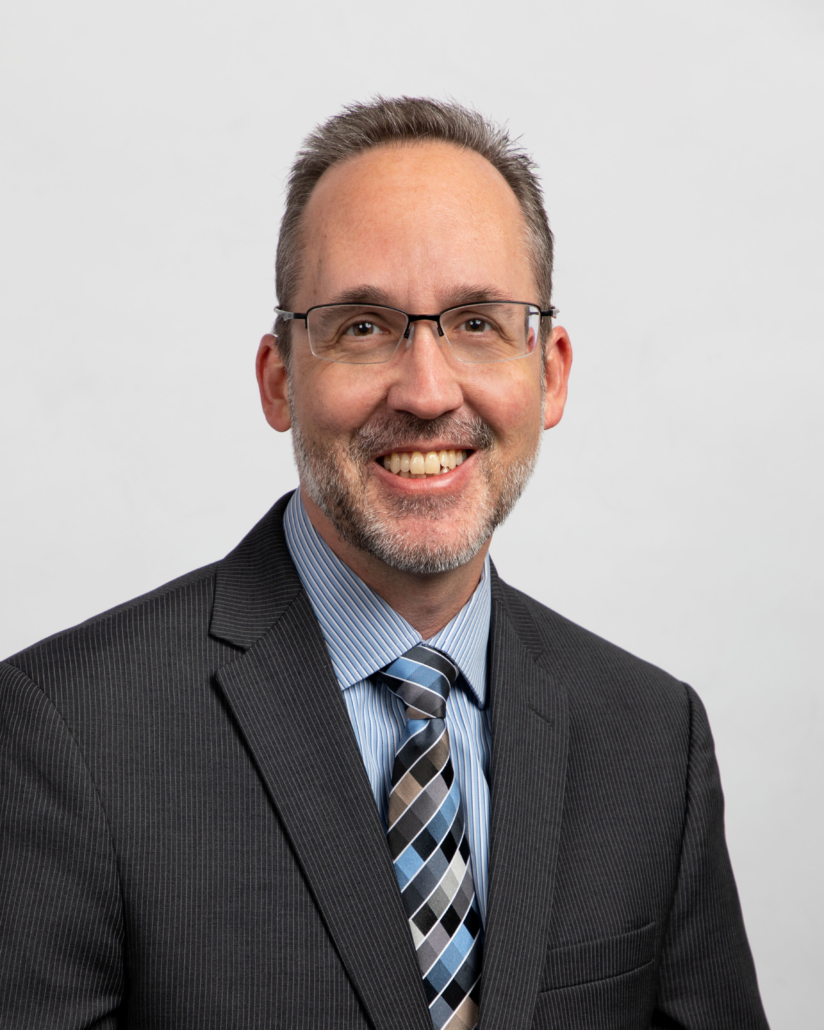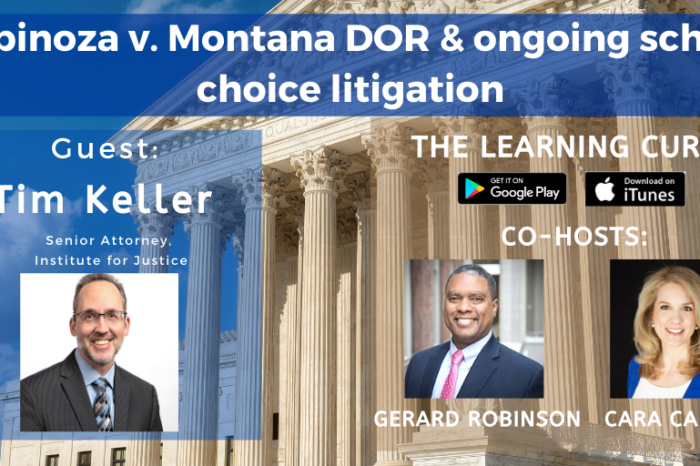The Institute for Justice’s Tim Keller on Espinoza v. Montana DOR & ongoing school choice litigation
This week on “The Learning Curve,” Cara and Gerard continue coverage of COVID-19’s impact on K-12 education, joined by Tim Keller, Senior Attorney with the Institute for Justice, which has been defending school choice from legal challenges, largely from state Blaine Amendments, for 30 years. Tim describes IJ’s work on behalf of the plaintiffs in the high-profile Espinoza v. Montana Department of Revenue case currently before the U.S. Supreme Court, and the impact of the pandemic on the timing of the ruling. They explore the case’s prospects for success, and some potential political and legal responses in the event of a favorable outcome. They also delve into the national implications of another recent case in Maine, involving families battling a long-standing state law prohibiting public tuition payments to religious school parents. Tim also shares the backstory of Arizona’s popular Empowerment Scholarship, an education savings account program that he helped design and defend.
Stories of the Week: Despite COVID-19 school closures, the College Board will move forward with Advanced Placement exams; but will the increased security measures enacted to prevent cheating raise controversy? Around the world, temples and churches have emptied as a result of the pandemic, but religious leaders are using technology to stream their services, and help congregants celebrate Passover and Holy Week even in the absence of physical connection.
Newsmaker Interview Guest:
 Tim Keller is a Senior Attorney at the Institute for Justice. He leads IJ’s Educational Choice Team and oversees the IJ attorneys who help policymakers design constitutionally defensible educational choice programs and who defend educational choice programs in courtrooms nationwide. Tim served as IJ’s lead counsel in Arizona Christian School Tuition Organization v. Winn, a U.S. Supreme Court victory that protected Arizona’s pioneering tax-credit-funded private school scholarship program. Keller also successfully defended Arizona’s Empowerment Scholarship Account Program, a publicly funded education savings account program he helped design. Tim worked as a research assistant at the Goldwater Institute, clerked for the Maricopa County Superior Court judge, and also clerked for an Arizona Court of Appeals judge. He received his law degree from Arizona State University. Tim tweets at @TimothyDKeller.
Tim Keller is a Senior Attorney at the Institute for Justice. He leads IJ’s Educational Choice Team and oversees the IJ attorneys who help policymakers design constitutionally defensible educational choice programs and who defend educational choice programs in courtrooms nationwide. Tim served as IJ’s lead counsel in Arizona Christian School Tuition Organization v. Winn, a U.S. Supreme Court victory that protected Arizona’s pioneering tax-credit-funded private school scholarship program. Keller also successfully defended Arizona’s Empowerment Scholarship Account Program, a publicly funded education savings account program he helped design. Tim worked as a research assistant at the Goldwater Institute, clerked for the Maricopa County Superior Court judge, and also clerked for an Arizona Court of Appeals judge. He received his law degree from Arizona State University. Tim tweets at @TimothyDKeller.
The next episode will air on April 17, 2020 with guest, Michael Horn, distinguished fellow and co-founder of the Clayton Christensen Institute for Disruptive Innovation.
Tweet of the Week:
The CARES Act, created in response to the #covid19 pandemic, includes more than $30 billion in #education funding, a lifeline to educators and students. Governors have communicated their priorities for the fund to @usedgov: https://t.co/mhSQcxDNd7
— NGA (@NatlGovsAssoc) April 5, 2020
Newslinks:
AP testing goes on, with revisions, amid school closures
https://www.educationdive.com/news/ap-testing-goes-on-with-revisions-amid-school-closures/575512/
Passover, Easter and Ramadan Become Virtual Holidays of Renewal
Get Updates on Our Education Research
Related Posts





















